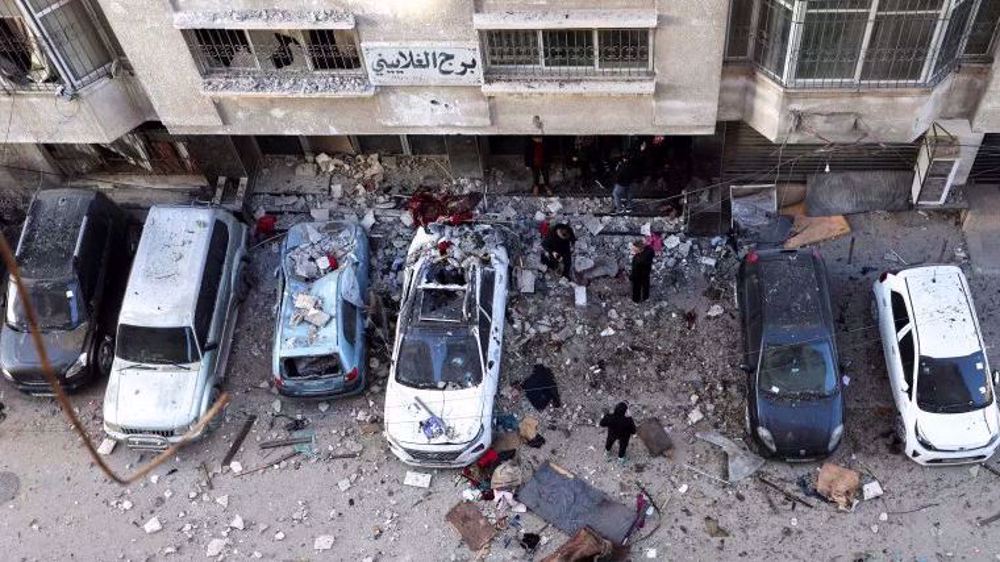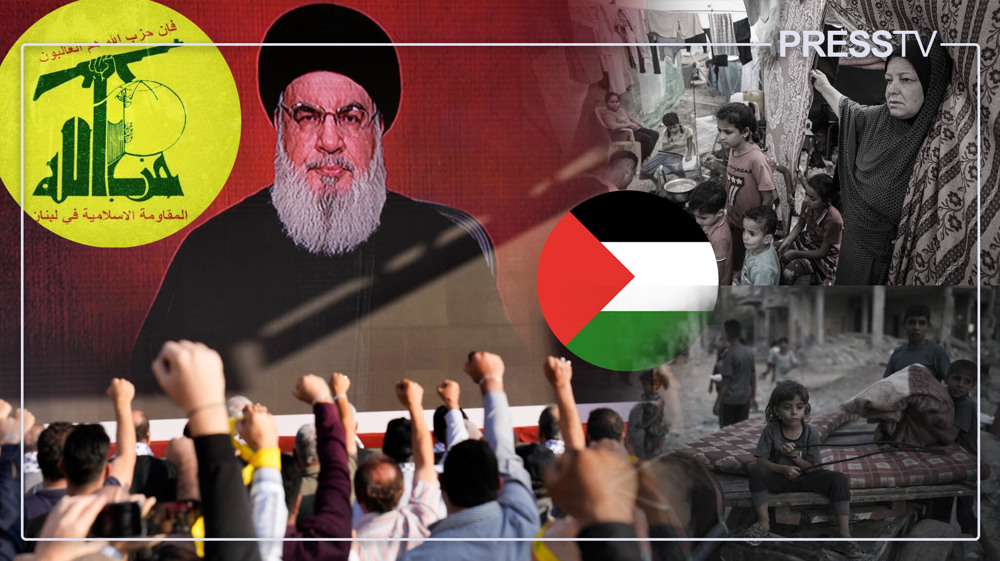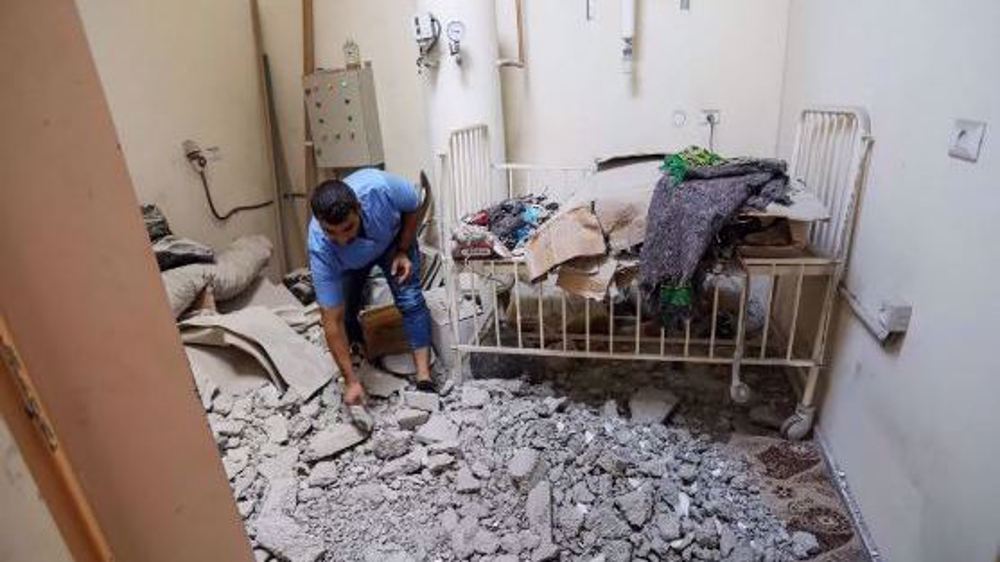Israel sleepwalking into deep economic crisis amid Gaza war
By Press TV Staff Writer
As Israeli tanks roar deeper into Gaza City chugging smoke along the besieged territory's roads potholed from incessant bombings, the regime is getting mired in the quicksand of its rage which could ultimately seal its fate.
Lost in their furry, Israeli leaders have shown total abandon and lack of inhibition in their apocalyptic obliteration of Gaza, but they are wantonly oblivious to the chilling effect that the war is having on every semblance of Israel’s survival.
Evidence is already mounting of the war’s destructive impact on Israel’s economy. Experts say the cost to Israel's economy of its war on Gaza will be unlike anything it has experienced in decades.
Last week, a group of about 300 senior Israeli economists wrote to the regime’s prime minister Benjamin Netanyahu and its extremist finance minister Bezalel Smotrich, harshly criticizing them for their detachment from the looming disaster.
“You do not understand the magnitude of the economic crisis that Israel’s economy is facing,” they warned in the letter.
Among the signatories of the letter were Prof. Jacob Frenkel, former governor of the Bank of Israel; Rony Hezkiyahu, former Bank of Israel supervisor of banks and accountant general; Yair Avidan, former supervisor of banks; Haim Shani, former finance ministry director general; Prof. Eugene Kandel, former chairman of the National Economic Council; former deputy governor of the Bank of Israel, Prof. Eytan Sheshinski; Prof. Leo Leiderman of Tel Aviv University; and 2021 Nobel Prize winner in Economics Joshua Angrist of the Massachusetts Institute of Technology.
They urged Netanyahu and Smotrich to “come to your senses” and immediately halt all nonessential expenditure items in the budget in order to cope with the looming economic crisis.
Technology and tourism are the main growth drivers of Israel's almost $500 billion economy. Both sectors are the worst hit by the conflict.
The tech industry accounts for 18% of Israel's GDP and half of all exports. According to an Israeli survey, about 70 percent of tech firms and startups are already facing disruptions in their operations as a chunk of their employees have reported for reserve duty.
The survey said the initial disruption has been so severe that only 12% of Israeli manufacturers were at full-scale production after two weeks of war. Most cited staff shortages as their biggest problem.
The labor ministry says 764,000 Israelis, or 18 percent of the workforce, are not working after being called up for reserve duty, evacuated from their towns or forced by school closures.
Meanwhile, more than 126,000 Israelis from the north and south of the occupied territories have been relocated amid the ongoing exchange of fire with Palestinian fighters in Gaza and Hezbollah in Lebanon.
Many companies from builders to restaurants have also shut and other retail firms have furloughed their employees.
In the construction sector, which is heavily reliant on 80,000 Palestinians living in the West Bank, many workers are missing.
This means the Israeli regime is on course to lose a significant chunk of its tax income from real estate and see a new price surge in the housing market which is already among the most expensive in Europe and West Asia.
A survey of Israeli businesses by the Central Bureau of Statistics found that one in three had closed or were operating at 20 percent capacity or less since it began, while more than half had reported revenue losses of 50 percent or more.
The results were even worse for the south, the region closest to Gaza, where two-thirds of businesses had either shut or reduced operations to a minimum.
However, as Israel’s economic prospects continue to darken, the gravest threat to its future ironically comes from within.
According to Leo Leiderman, chief economic adviser to Bank Hapoalim which is one of Israel’s biggest banks, there is an "emotional crisis" among the Israeli public and it is already taking a toll.
He said spending by households has collapsed because of the uncertainty and the mood, dealing a major shock to the consumer sector that accounts for about half of gross domestic product.
On Sunday, the Israeli regime's finance ministry estimated that the war in Gaza will cost as much as $51 billion, but it was dismissed as “optimistic”.
Experts say the geographical reach and duration of the conflict will determine the extent of its long-term economic impact.
The financial toll is already stacking up. The shekel, currently at its lowest value since 2012, is heading for its worst yearly performance this century.
Meanwhile, Israeli stocks are the world’s worst performers since the war began.
And by all indications, the crisis is going to leave long-lasting scars across Israel’s economy, from which it might never recover given the emotional and psychological jolt that the entity has suffered.
Qatari foreign minister holds talks in Tehran with FM Araghchi, Iran’s top security official
Diplomacy Iran’s priority, but forced negotiations unacceptable: President
VIDEO | IRGC is part of Iran’s national army: Pundit
FM: IRGC upholds peace, stability as foreign meddling fuels escalation
VIDEO | Trump Epstein files scandal
VIDEO | Global order on the brink
VIDEO | 47th anniv of Islamic Rev.
Israeli claims of ceasefire violations meant to 'justify massacres' in Gaza: Hamas
















 This makes it easy to access the Press TV website
This makes it easy to access the Press TV website